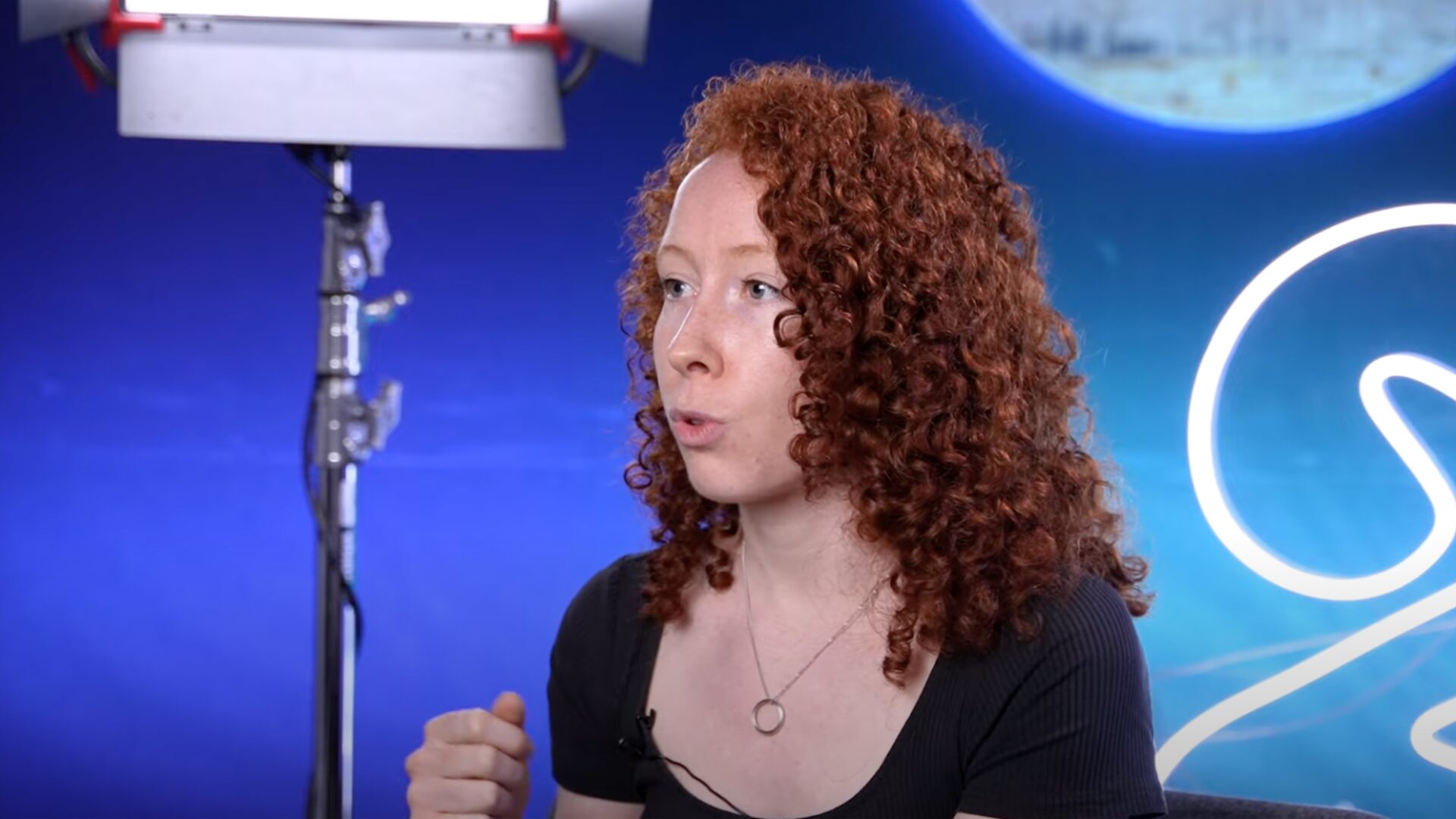My name is Quitterie, I’m 25 years old, I live in Montauban. And four years ago I was diagnosed with multiple sclerosis. As a result, I wrote a book so I could tell my story.

“When I woke up, I had a very bad pain on the right side of my face. »
Multiple sclerosis is a disease whose name everyone knows, but the details of which are unknown. It is an inflammatory disease of the central nervous system. So, it is our immune system that will attack the spinal cord and brain. It is a disease that will manifest itself through exacerbations, therefore inflammation.
It can affect the eyes, it can affect speaking, walking, touching. And therefore cause more or less irreversible disabilities depending on the severity of the attack. I found out I had multiple sclerosis in 2020.
When I woke up, I had a very bad pain on the right side of my face. And then, I felt there was some kind of dust or eyelash above my right eye.
In fact, I notice that when I close my left eye I see almost nothing. So I tell myself that it’s a bit surprising, but that perhaps the day, the tiredness, have caused this vision problem. I fall asleep and the next morning it doesn’t work. I go to my eye doctor who tells me that I can’t see anything on the surface and that there is probably an internal problem.
I go to the ophthalmic emergency room and stay for a week. A week where I did a lot of tests, consultations, exams and finally, almost two months later, I saw a neurologist who told me I had multiple sclerosis.
When they told me this I was extremely surprised. But in reality I didn’t really understand what it was about. In the end I didn’t know, I hadn’t asked for information. I didn’t know the contours of the disease and it’s true that at the beginning I was sad and a little upset, but without fully understanding what it would entail.
Medical wanderings before making the correct diagnosis
When we give this disease a name, it is not tangible. Nothing has changed in us. So we put a label on it but we don’t really realize what it means behind it. My brother told me about multiple sclerosis. He said this to me, during a conversation: “It’s surprising, optic neuritis”, so the inflammation I had in my eyes that had caused these vision problems, “This is one of the first symptoms of multiple sclerosis”.
But in fact, since none of the doctors I had visited had been able to pronounce that word, he had told me about it. I had always reassured myself by telling myself that the causes of optic neuritis could be multiple and that I shouldn’t draw hasty conclusions. At the time I was very angry at the doctors for not having prepared me more to find out such a diagnosis.
This content is blocked because you have not accepted cookies and other trackers. This content is provided by YouTube.
To view it, you must accept the use made by YouTube with your data which may be used for the following purposes: to allow you to view and share content with social media, to promote the development and improvement of the products of Humanoid and its partners , show you personalized advertisements related to your profile and activity, define a personalized advertising profile, measure the performance of advertisements and content on this site and measure the audience of this site (more information)
By clicking “Accept all”, you agree to the above-mentioned purposes for all cookies and other trackers placed by Humanoid and its partners.
You can withdraw your consent at any time. For more information we invite you to read our Cookie Policy.
Manage my choices
“It is very guilty to get sick”
Causes a lot of tiredness, multiple sclerosis. I don’t have the same pace of life. Sleep is a much bigger part of my day. Afterwards, for the rest, obviously I continue to play sports, to be able to eat what I want, to do the activities I want. We feel very alone when we are sick.
I knew that only I could make myself feel better. When I announced my illness, there was some silence in the family. It was quite complicated to discuss it. My parents pushed me a lot, above all to move forward, to try to see the positive. Something I didn’t want or need at the time. I just wanted to be told that my sadness was legitimate and without wanting to rush the journey I was on.
What I wanted to hear was, “Actually, what do you need? Do you need me to be there? Do you need to talk? Do you need him to stay further back? That this disease doesn’t take up too much space, so let’s not talk about it?” So I closed myself off a bit and tried to follow this path with my boyfriend who, for once, understood and had an attitude suited to what I expected. What he did and what may sound a little cliché, is he just actually continued to love me.
It is very guilty to get sick and accompany someone a little in their fall because I impose this illness on them and the consequences it can have. I really fought against all the very dark feelings I had by telling myself there was always worse. That in the end there were a lot of other things in my life that were good, that I wasn’t so unhappy.
From the moment I accepted this sadness, accepted that it was difficult, that I had the right to be sad, that it was complicated, I started to see some light at the end of the tunnel.
And I think it doesn’t matter what other people told me, until I went through that process and accepted that I had the right to be sad, the right to be unhappy and that I actually had reasons to be unhappy, I couldn’t have started to improve.
From acceptance to writing
During this difficult and rather dark period, I wrote a lot. The process of writing and then publishing my book has done me a lot of good. I had the impression of being able to detach myself from what had happened to me, of being able to understand better, of verbalizing what I had experienced.
Life with multiple sclerosis
My MRIs have been stable for two years now, so the disease doesn’t seem to be progressing in my body. I do treatments once a month, at regular intervals, injections and injections. It’s an immunosuppressive treatment, therefore quite invasive, but for the moment it’s fine for me without too many side effects on me. For the moment there is no cure that can cure multiple sclerosis, there are only treatments that can contain the disease.
So far the treatment seems to be working, so you never know. Is it just the disease that is calm, without causing flare-ups, or is it really the drug that works? We will never know too much.
Indeed, as things get better physically, obviously, it is easier mentally too. I have much less anxiety about the future. I am able to live more day after day.
I think about it a little every day, but it’s less omnipresent than before, when there was constant anxiety and questions. It has less meaning in my life today.
To testify about Madmoizelle, write to us at:
[email protected]
We can’t wait to read you!
Listen to Apéro des Daronnes, Madmoizelle’s show that aims to break down taboos on parenting.
Source: Madmoizelle
Mary Crossley is an author at “The Fashion Vibes”. She is a seasoned journalist who is dedicated to delivering the latest news to her readers. With a keen sense of what’s important, Mary covers a wide range of topics, from politics to lifestyle and everything in between.




